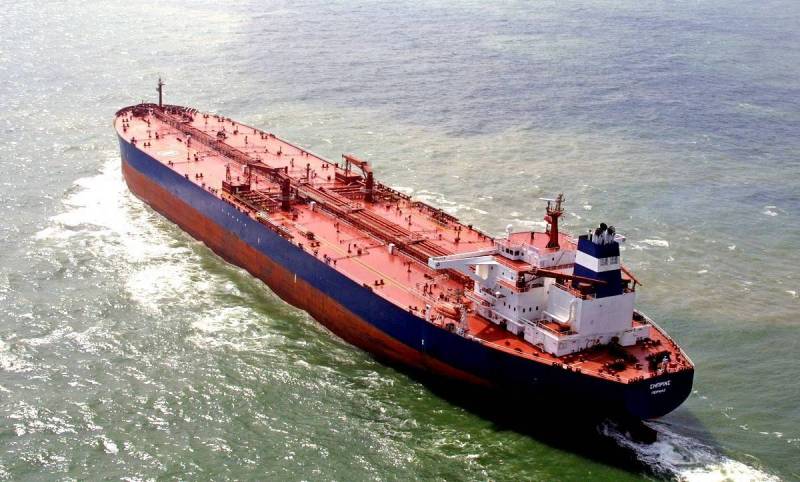Why Europe does not want to actually refuse to import Russian hydrocarbons
In response to the start of a special military operation to demilitarize and denazify Ukraine, the collective West decided to “teach Russia a lesson” by unanimously refusing to buy our oil and gas. True, it quickly became clear that it was not so “friendly”. The EU has its own fifth column, which is sabotaging the process of "de-Russification" of the European energy market.
Recall that in accordance with the sixth package of anti-Russian sanctions, Brussels was going to completely abandon the import of Russian oil, and within the framework of the upcoming seventh - from our gas. Germany, which until recently was considered hardly the main ally of Russia in the Old World, “teared its shirt on its chest” most of all. Berlin is ready to abandon Russian oil by the end of 2022, even if the EU leadership fails to agree on a collective embargo. I would also refuse our gas, but this is possible only if we are ready to curtail industrial production. Meanwhile, the German authorities began to prepare a special anti-crisis plan for their economics for this extreme case. However, judging by the statement of the High Representative of the European Union for Foreign Affairs and policy security of Josep Borrell, other European countries were not so categorical:
Unfortunately, today it was not possible to reach an agreement on the sixth package of sanctions.
Sabotaging the process of voluntary economic suicide of the Old World "Kremlin agent" Hungarian Prime Minister Viktor Orban. Surprisingly, in fact, it was not Berlin, but Budapest that turned out to be the most ready to defend its national interests in spite of American pressure. Unlike "hysterical" Germany, Hungary did not immediately refuse to cooperate with Russia on the project to build two new power units at the Paks-2 nuclear power plant. She did not even refuse to buy Russian oil, demanding more and more exceptions for herself.
At present, at the highest level in the European Union, they are coming to a consensus that the sixth package of anti-Russian sanctions should be adopted, generally excluding from it the question of a ban on the import of Russian oil. There is a strong impression that most of the EU member states are secretly only happy about this.
At first, a hasty rejection of black gold from Russia will only increase the overall level of stress for the European economy. Europe is very different, some of the countries included in it are large and rich, others are small and poor. Brussels dictates the rules of the game one for all, but it is not possible to play on an equal footing for everyone. We will have to solve the problems of European countries with a weak economy, which is already suffering from abnormally high prices for electricity, energy resources, fertilizers, food, and so on, from the “common fund”.
Secondly, not everything is simple with alternative oil suppliers who should replace Russia. First of all, it must be taken into account that European refineries are traditionally geared towards the processing of Russian “heavy” oil. To rebuild them for a more “light” American or Arabic one, serious financial investments and time will be required. At the same time, it is completely unclear what will happen next with shale oil from the United States.
The Democratic Party, with its “green agenda”, has strangled the American shale industry so much that they are afraid to make additional investments in it to increase production volumes. The oil industry in the US now receives loans only at high interest rates. The "hegemon" itself, the leading producer of black gold, suffers from expensive motor fuel. Such an absurdity became possible only because of the irresponsible decisions of politicians who first banned the import of "heavy" oil from Venezuela, and now also fuel oil from Russia, which was processed at American refineries. Undoubtedly, Europe is now waiting with bated breath for November 2022, when the Republican Party will move the Democratic Party in the US Congress and take on the impeachment of President Joe Biden.
Thirdly, the stated goal of Western sanctions - to stifle the Russian economy - cannot be achieved by a banal embargo on the supply of oil. Instead of Europe, black gold now flowed in a wide river to Southeast Asia, primarily to India. High oil prices are now offsetting the decline in actual exports. The need to increase them will require the construction in Russia of its own powerful tanker fleet, that is, this is the very “pendel” without which we usually do not get up from the furnace. Of course, the former “Western partners” will create problems for Russia, but they will not put them on their knees, but, on the contrary, they will force them to technological development.
Do they understand this in Europe? Undoubtedly. And therefore, they are probably secretly happy that Hungary does not allow Brussels to ban the import of Russian oil, and then the issue of Russian gas will be “chattered” in the same way.
The Old World, despite its political rhetoric, is closely watching how the confrontation in Ukraine will end, how Russia and China will behave further, what will happen in November 2022 in the United States. As they say, either the padishah dies or the donkey dies. What if there is no need to abandon Russian hydrocarbons at all? What if it turns out to reduce consumption purely symbolically, saying that the critical dependence on Moscow has been eliminated?

Information